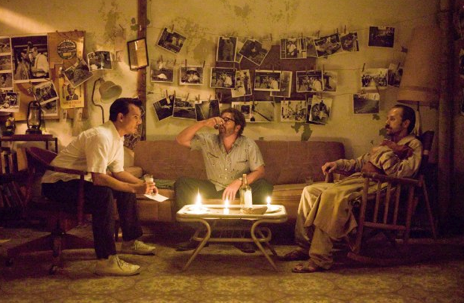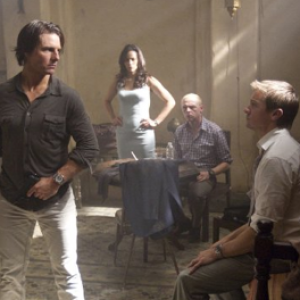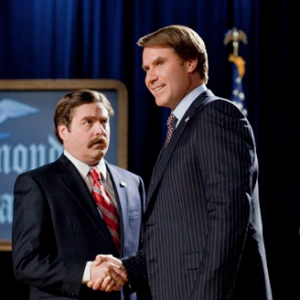REVIEW: THE RUM DIARY
 Johnny Depp stars in The Rum Diary, an adaptation of acclaimed writer Hunter S. Thompson’s second novel, in which American journalist Paul Kemp attempts to stay afloat as he struggles with political corruption, artistic integrity and 100 proof liquor on the beaches of Puerto Rico.
Johnny Depp stars in The Rum Diary, an adaptation of acclaimed writer Hunter S. Thompson’s second novel, in which American journalist Paul Kemp attempts to stay afloat as he struggles with political corruption, artistic integrity and 100 proof liquor on the beaches of Puerto Rico.
Kemp is something of a Thompson surrogate, and the film is a fictionalised account of his short lived career as a journalist for a Puerto Rican newspaper. A frustrated writer, Kemp longs to write a great novel and find his voice, all the while getting more deeply involved with the city’s locals and its politics. The film is an origin story of sorts, the tale of a great writer first discovering a point of view, and Depp is more than suited to the role, having already given an exceptional performance as the writer in 1998’s Fear and Loathing in Las Vegas. A personal friend of Thompson’s during his later years, Depp clearly has a vested interest in the writer’s work and also produced the film, written for the screen and helmed by Withnail & I director Bruce Robinson. Though their intentions seem noble and their passion for the source material is evident, The Rum Diary is unfortunately something of a middling film. The novel is one of Thompson’s earlier works, written in his 20s, but the screen version of The Rum Diary feels distinctly like the product of middle-aged men. The languid pace fails to fully reflect the manic wit of Thompson’s prose, and the anarchic sensibility that served both Withnail and Fear and Loathing so well is nowhere to be found.
The Rum Diary is not entirely without its merits, however; Depp, as usual, is immensely watchable, and here he cements his place as the definitive on-screen manifestation of Thompson’s voice. The rest of the cast are just as able, and there is a definite chemistry between Depp and all the key players, including Aaron Eckhart, Amber Heard and Michael Rispoli. The film is also genuinely funny in places, though not often enough, with some of the biggest laughs coming from paragraphs quoted verbatim from Thompson’s writing rather than the film’s own comedic set pieces.
The Rum Diary is not a bad film, but it’s not a particularly good one, either. There are definitely things to enjoy here, and fans of Thompson will at least take pleasure in seeing more of his work on screen, but when we look back on 2011 in terms of cinema it is likely that The Rum Diary will be remembered as an also-ran, if at all. The film comes across as a noble attempt to honour Thompson’s work and life – the movie ends with a dedication to his memory – and does a commendable job in doing so, but is not quite the essential cinema that his work deserves.
Words: Josh Hicks






